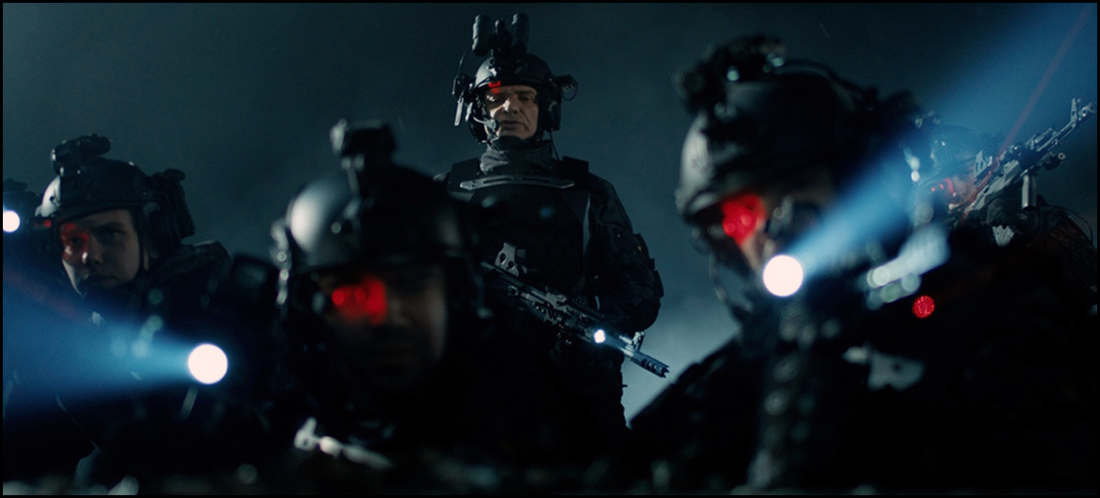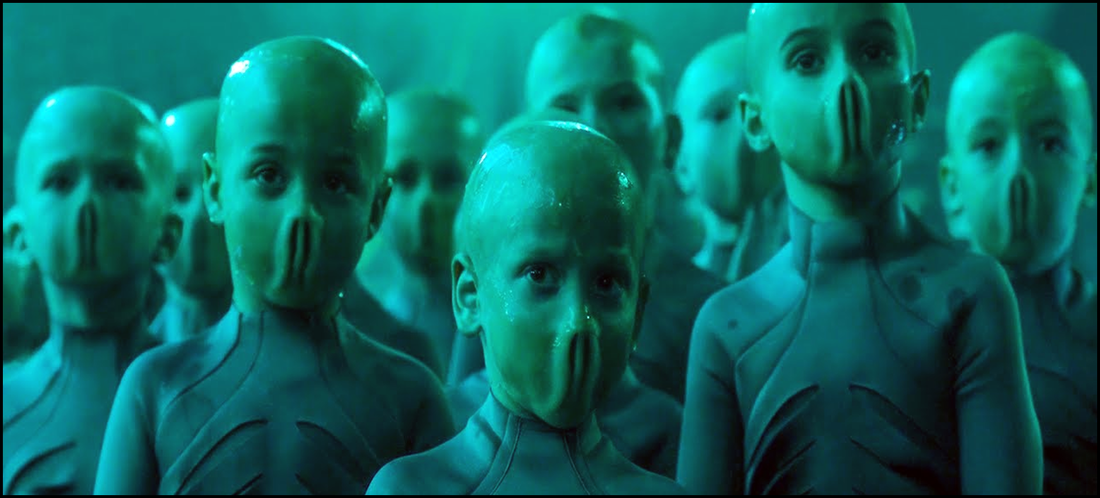Thankfully, The Blackout (aka The Blackout: Invasion Earth) bucks that trend. This script from award-winning screenwriter Ilya Kulikov is literally packed-to-the-gills with ideas, essentially building a world wherein mankind itself was a product of an alien intelligence who seeded our planet nearly a quarter-million years ago for the purpose of creating a slave race to eventually do all of their dirty work. But Kulikov doesn’t stop there: his expansive story even posits the lengths to which these alien overlords had to plot out every possible development in our shared existence, and rest assured that this is no small feat.
Therein lies the film’s central problem: it’s an awful lot to digest, and it sadly gets communicated through a series of strategically placed ‘information dumps’ along the way. Some of its clunkiness is likely attributed to the fact that, originally, the feature was shot as 6 30-minute episodes for big budget television, and the international cut released for the Western world clocks in at just over two hours. As a consequence, I have a strong feeling that some of this simply had to get communicated this way due to the structure; perhaps those six episodes might have stronger balance as well as more character development and explanation for the missing details.
Performances are all very good. Aleksey Chadov and Pyotr Fyodorov are the ‘buddies’ in this ‘military buddies’ picture, though exactly how they are thrown together might have been one of the elements lost in this translation; some of Pyotr’s “awakenings” as a character – i.e. why he’s such a great combatant while having little to no combat training whatsoever – get brushed over in one of the exposition packages, and it would’ve been nice to have more substance there. Lukerya Ilyashenko’s ‘Alyona’ comes across like a Russian-language Jennifer Lawrence clone: she’s pretty in just the right way to distract the audience from a convincing development as to how she’s one of the medical geniuses of the country (and that somehow escaped earlier disclosure in the script). Svetlana Ivanova is the heart-of-gold journalist who just happens to be in the right place at the right time to be blessed with the exploring the story of a lifetime. There are a few supporting players – Kseniya Kutepova does solid work as the military leader who gets roped into exposing this alien conspiracy – and, as I said at the outset, they all turn in good marks for what’s required here.
An understanding of the Ancient Astronauts theory helps most of The Blackout come across as if its an attempt to extrapolate how all of that may have happened way back then; and, on that level, The Blackout blacks out much of an explanation. It’s covered quickly, with a lot of gloss, and how the disparate elements of evolution, telepathy, and a distant alien government planning from afar never come together in a way that benefits the viewer; instead, they’re offered here as filler to get these soldiers from one military encounter to the next as the action quotient gets heavily dialed up in the second half. Because I appreciate even casual SciFi, it’s easy to find The Blackout’s appeal in its bare bones framework; I would have to know an awful lot more – as well as see an effective resolution – to know if this is one worth re-examination. As it stands, I feel like I’ve seen much of this before, just maybe with a smaller body count.
Still, there’s no shortage of ambition here. Kulikov’s script – while picking out some of the better SciFi tropes of the era – definitely puts its characters through some paces. There’s loss in here on an epic scale; but there’s no way to know whether or not it’s worth it. We won’t know that until the story is properly brought to a close, and I’ve no way to know whether that’s the case or not.
The Blackout (aka The Blackout: Invasion Earth) stops short of being good but never fails to be interesting. The problem is that it’s clearly incomplete – the ending is, arguably, one of the biggest cliffhangers in film (of recent record); and I’ve been unable to locate whether or not a sequel is in the offing or headed to television as a miniseries event. Still, if you like spectacle and can appreciate aspiration, there’s plenty to behold in this two-hours-plus; I think it best, though, that you understand ahead of time that the meal is incomplete.
-- EZ



 RSS Feed
RSS Feed